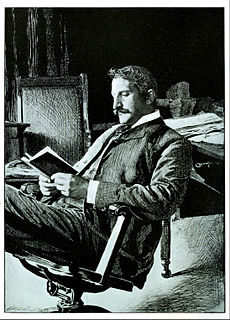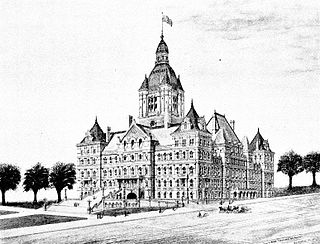
The Roman CatholicArchdiocese of New York is a Latin Catholic archdiocese in New York State. It encompasses the boroughs of Manhattan, the Bronx and Staten Island in New York City and the counties of Dutchess, Orange, Putnam, Rockland, Sullivan, Ulster, and Westchester in New York. The Archdiocese of New York is the second-largest diocese in the United States, encompassing 296 parishes that serve around 2.8 million Catholics in addition to hundreds of Catholic schools, hospitals and charities. The Archdiocese also operates the well-known St. Joseph's Seminary, commonly referred to as Dunwoodie. The Archdiocese of New York is the metropolitan see of the ecclesiastical province of New York which includes the suffragan dioceses of Albany, Brooklyn, Buffalo, Ogdensburg, Rochester, Rockville Centre and Syracuse.

New Windsor is a town in Orange County, New York, United States. The Town of New Windsor is in the eastern part of the county, bordering the Town of Newburgh and the City of Newburgh. The population was estimated at 25,244 in 2010 by the US Census.

Peter Cooper was an American industrialist, inventor, philanthropist, and candidate for President of the United States. He designed and built the first American steam locomotive, the Tom Thumb, and founded the Cooper Union for the Advancement of Science and Art in Manhattan, New York City.

Frank Nelson Doubleday, known to friends and family as “Effendi”, founded the eponymous Doubleday & McClure Company in 1897, which later operated under other names. Starting work at the age of 14 after his father's business failed, Doubleday began with Charles Scribner's Sons in New York.
Doubleday can refer to one of the following:

Charles Humphrey, was an American lawyer and politician who served as United States Representative from New York.

Thomas Henry Barclay was an American lawyer who became one of the United Empire Loyalists in Nova Scotia and served in the colony's government.
Thomas Donnelly may refer to:

William Cornelius Hasbrouck was an American lawyer and politician.
Stephen Ward Doubleday was an American banker.
Benjamin S. "Sport" Donnelly was an American football player and coach. He was the second-ever known professional football player, behind William Heffelfinger. He was paid $250 for one game on November 19, 1892 by the Allegheny Athletic Association, for a game against the Washington & Jefferson Presidents football team. The November 19 date was exactly seven days after the team paid Heffelfinger $500 for a game. In 1893, Donnelly was hired by the Allegheny Athletic Association as player-coach, making him the first man to ever coach a known pro team. Heffelfinger once said that Donnelly was the only man that he had played against who "could slug you and at the same time keep his eyes on the ball". Donnelly also served as the second head football coach at the University of Iowa for a single season in 1893, compiling a record of 3–4.

The 33rd New York State Legislature, consisting of the New York State Senate and the New York State Assembly, met from January 30 to April 6, 1810, during the third year of Daniel D. Tompkins's governorship, in Albany.
Ulysses Doubleday was a Union Army colonel during the American Civil War. In 1866 he was nominated and confirmed for appointment to the grade of brevet brigadier general of volunteers, to rank from March 13, 1865.

The 116th New York State Legislature, consisting of the New York State Senate and the New York State Assembly, met from January 3 to April 20, 1893, during the second year of Roswell P. Flower's governorship, in Albany.

Aaron Homer Byington was the U.S. Consul in Naples from 1897 to 1907. He was a newspaper publisher and editor. He also represented Norwalk in the Connecticut House of Representatives from 1858 to 1860, and was a member of the Connecticut Senate representing the 12th District from 1861 to 1863.

Homer Ramsdell was an American business man, known as president of the Erie Railroad from 1853 to 1857 as successor of Benjamin Loder.















